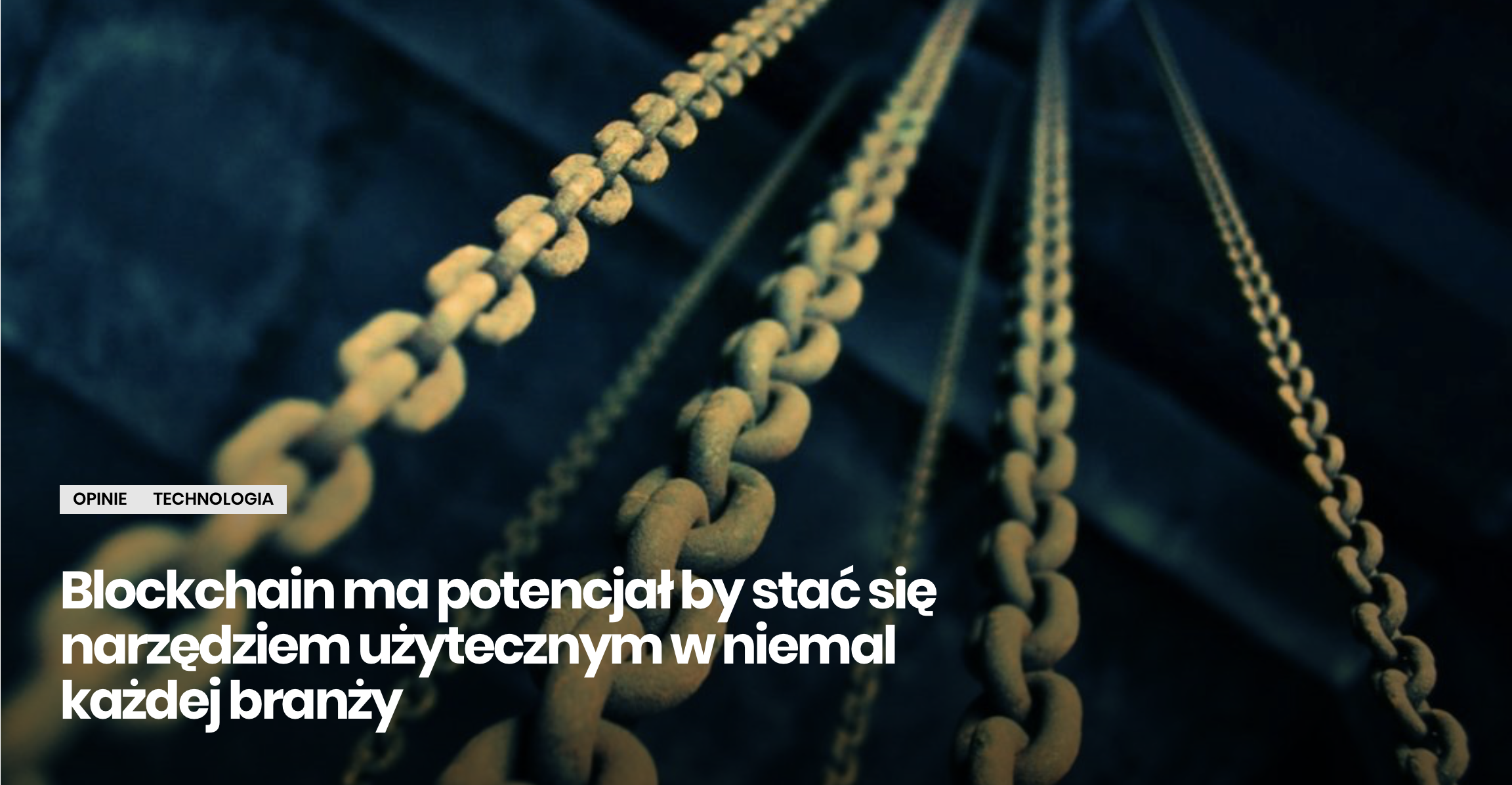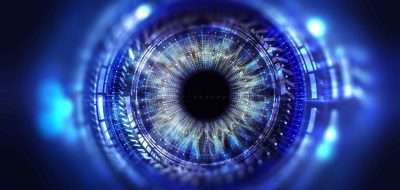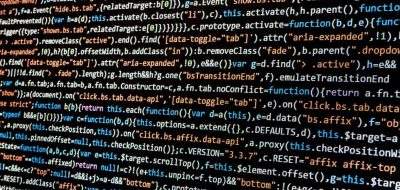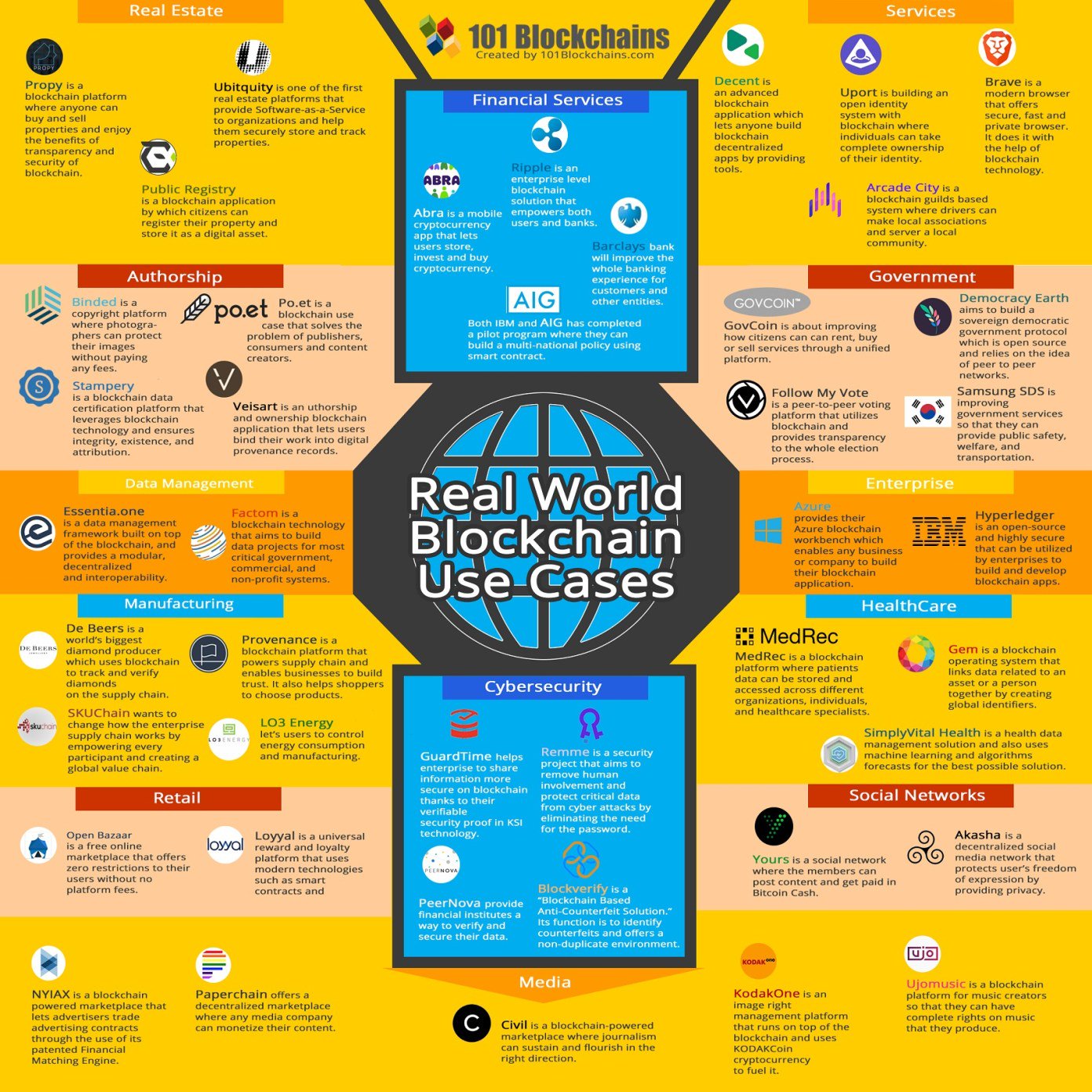My article in BrandsIT dated May 28, 2018.
Blockchain is a universal transaction book, allowing registration and tracking of every operation carried out within it, distributed throughout the Internet in thousands, non-editable copies, in the pre-peer model and secured with advanced cryptographic methods.
The easiest way to compare it is to an accounting book – publicly available, global and allowing each of its users to register and view transactions such as financial transactions, property deeds or eg contracts. But the information who made the transaction is confidential, available only to the owner of the transaction. The programmable, open nature of blockchain technology will completely rebuild the financial sector. And even more – some of its supervisory and accounting elements will be unnecessary. Trade processes, information exchange will become transparent and faster and much cheaper, with no costs incurred for maintaining the entire financial system in the world. Public trust institutions – banks, stock exchanges and financial transaction agents also see great potential in it, but also a threat to the status quo.

I explained how blockchain technology works in an article I posted last year. Now, I would like to discuss its potential to become a universal tool offering useful applications to just about every industry and sector.
One of the most important features of the blockchain is that all users who decide to use this “book” have access to its copy, and each copy automatically registers any changes made within it. Blockchain is a distributed system, which means that there is no central source of processed data.
The security of its use and application, which seems to be its most important feature, results from the application of mathematical algorithms and rules of cryptography. Blockchain can register transactions: sales, exchanges, authorizations, electronic signatures and actually any operation that is associated with the validation of any form of assets.
Specialists say that blockchain needs more than a dozen years of further dissemination and improvement to be globalized. Today, its development and functioning are perceived primarily in the context of the cryptocurrency market. The idea of creating a universal book of all operations was born in an environment that created the first – alternative to the official financial system – currency, Bitcoin (BTC). It can be said that the cryptocurrency world is a specific laboratory in which all the strengths and weaknesses of this technology are verified in continuous use.
Blockchain is growing and will develop. It is too high a quality change in order to threaten the market annihilation. There are a lot of questions that are born on the occasion of its dissemination, and one of them concerns scalability. And this is potentially unlimited.
Until, what benefits the blockchain brings the financial industry the fastest. But we are only at the beginning and the situation can be compared to the moment in which the Internet was in the mid-90s. At that time, nobody ever imagined that the Internet 2.0 revolution would change the essence of the network. Blockchain is still in its first phase of development, but it should soon experience a period of dynamic growth, which in time means a real globalization of the mechanism.
At this point, I would like to point to these spheres of reality, where the blockchain should perform the fastest and the best because of its structural features.
Link to the full article (in Polish)
Related articles:
– Why do we care about blockchain technology?
– Blockchain – the ultimate financial crash
– Blockchain – the Holy Grail of the financial system?
– What is blockchain? All you need to know
– What are the bitcoins? All you need to know
– Blockchain has a potential to upend the key pillars of our society










Tom Jonezz
I know someone who’s country manager of an auto company. He’s great at selling automobiles – but like everyone c-level, they assume success in one field automatically makes them visionaries in all. Recently he told our group about how Blockchain will revolutionize the auto industry. Someone asked him about the applications. He replied that Blockchain will create a “non-repudiable sequence of transactions”.
When others asked him who will manage the Blockchain and who the target users are, he said, “we will figure that out as we go along.”
Often people just throw new faddy words to sound intelligent. AI, Blockchain, etc are the asshole words of our time. The technology and science are legitimate and might be huge for society/ industry in time, but they often get hijacked by the hype cycle.
ZoraBora
The problem with traditionally built trust is that it is hard to do, and people lie. How are you supposed to convince people, as a no-name nobody, that you won’t just run off with their money? You basically can’t. People will just overlook you and turn to the Paypals and Amazons of the world. But with smart contracts, you can make it literally impossible to take the money, and prove that it is that way. It provides a possibility to bootstrap trust, even in inherently trust-hostile environments. That is a genuinely valuable and disruptive thing.
JohnE3
While the blockchain is most well-known for being the innovation that makes cryptocurrencies (like Bitcoin and Ethereum) possible, there is something deeper here that the real fanatics (like me!) get really excited about.
Without getting into the nitty gritty details, the blockchain is an innovation in computer science that makes it possible for a decentralized network to come to a consensus on a sequence of events.
For example, what if I told some computers in Asia that I sent Bitcoin to you, but I told some other computers in America that I instead sent that same Bitcoin to my other friend? When those messages propagate through the network, which one trumps the other?
Traditionally, this question was essentially unanswerable, without using a trusted server to simply decide based on which one it had seen first. Blockchains solve this problem–google mining and minting of blocks to learn more.
The reason this is exciting is because it lets a group of people come together, work together, and more importantly, come to a consensus, without having to trust some third-party server somewhere that has control over the whole operation.
Bitcoin is using this innovation to make decentralized currency. Ethereum is using this innovation to make a decentralized computing platform. We are still in the early days, but the innovation of the blockchain itself is now far from unproven. These days we are building things on top of it, and only just scratching the surface of what it will enable.
Zidan78
Fyi a nice article giving an overview about blockchain @ energy: https://hackernoon.com/energy-industry-and-blockchain-overview-and-applications-c9c88e2039b
TommyG
I think you’re making the common mistake of reading ‘smart contract’ and equating it with the legal instrument that shares the name. It’s not even close to the same thing, it’s just a terrible name. Call it what it is – a script. Nobody is saying that ethereum replaces interpretation of the law or scenarios that require complex human interaction with a problem. There is, however, a lot of problems out there that are not complex, but are easily automated if the virtual machine making the decision is trusted by both parties and it acts on pre-agreed triggers. That is the sort of thing that distributed processing streamlines.
Norbert Biedrzycki
Real blockchain use cases @101Blockchains
DDonovan
Money is arguably one of humanity’s most important inventions. From beaver pelts to gold bars, the form and function of money has constantly fluctuated throughout history. In the modern world, the definition of money is blurrier than ever. Central banks have opted to create trillions of dollars of currency out of thin air since the financial crisis – and on the flipside, you can actually use blockchain technology to create your own competing cryptocurrency in just a few clicks. Regardless of what is money and what is not, people are borrowing record amounts of it.
ZoraBora
On first read, the premise appears to be that blockchain doesn’t solve trust problems because so many other parts of the processes remain untrustworthy.
While true, trust isn’t solved with block chain, the premise reads as anti-progress: why make something incrementally better if it doesn’t fully solve the problem? I argue many important advances in technology are consistent incremental improvements.
The transparency gained through blockchain’s mechanism positively affects part of the problem space, I think it’s worthwhile to invest in it instead of give up on it.
ZoraBora
Nice beginning. Unfortunately the rest in a language I do not understand